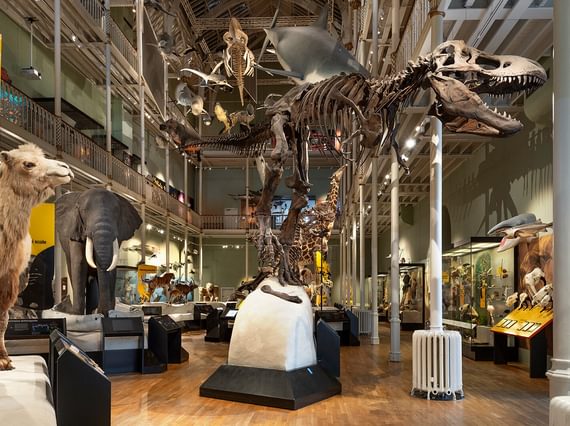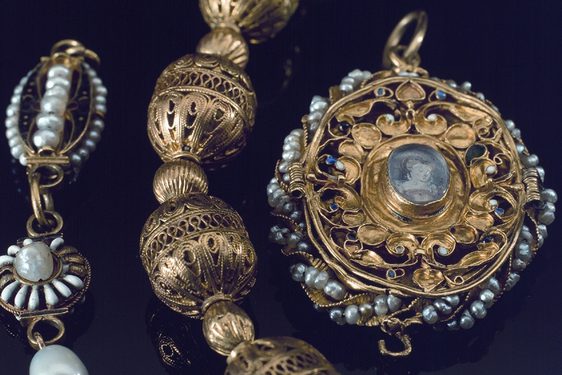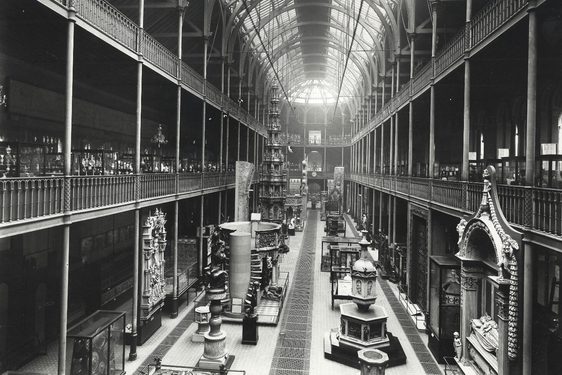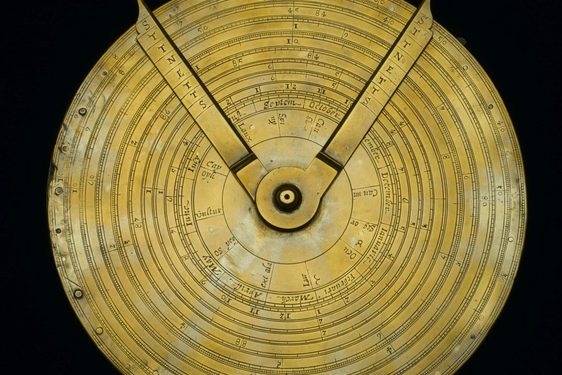
Collections policies
We aim to develop, manage, conserve and interpret the national collections, to ensure their preservation and benefit to the public.
Our fundamental mission is the advancement and dissemination of knowledge and understanding through access to its collections. The following policies guide our continued commitment to these aims and mission. Here you can discover more about our policies and download the full policy documents.
Collections Research
Collections research is one of the main ways by which we interpret and make accessible for all the past and present of Scotland, other nations and cultures and the natural world. It ensures that public benefit is generated through the creation and dissemination of new knowledge about objects in the collection.
Downloads List
Research Ethics Policy
This framework for the ethical conduct of research within National Museums Scotland is also guided by principles of dignity, respect, selflessness, honesty, integrity, objectivity, accountability, openness, and leadership.
The principles apply equally to staff and external researchers and this code forms part of National Museums Scotland policies on staff conduct and research.
Downloads List
Annual Research Ethics and Integrity Statements
In compliance with UKRI terms and conditions, below are NMS Annual Statements. FY2022-23 was reviewed and approved by the Research Strategy Group in November 2023.
Downloads List
Collections Development Strategy
This strategy sets out our ambitions, strategic context and over-arching principles and priorities for our collections. It includes an overview of the collections, priorities for future collecting and our legislative, ethical and procedural framework in compliance with the requirements of accreditation, the nationally agreed standard for UK museums.
Downloads List
Collections Care and Conservation Policy
This policy sets out the principles by which National Museums Scotland will ensure that there are effective arrangements for the care and conservation of the collections.
Downloads List
Collections Information and Access Policy
This policy sets out the principles by which National Museums Scotland will ensure that there are effective arrangements for collections information management and access to the collections.
Downloads List
Requests for Permanent Transfer to Non-UK Claimants
National Museums Scotland will consider a request for the permanent transfer of collection objects to non-UK claimants where the request meets certain criteria. This procedure outlines what these criteria are and, when they are met, how requests will be considered and managed.
Downloads List
Human Remains in Collections Policy
This policy identifies collections made from or containing human remains as worthy of special consideration in regard to acquisition, curation and disposal (transfer). It outlines the procedures and processes that will be followed by National Museums Scotland with regard to requests or demands for the permanent transfer of such material from the permanent collection.
Read more about human remains in our collections.
Downloads List
Access and Benefit Sharing: Convention on Biological Diversity and the Nagoya Protocol
Our diverse collections include natural sciences specimens containing genetic material which we collect, manage and care for in line with the laws and regulations relating to Access and Benefit-sharing, arising from the Nagoya Protocol and Convention on Biological Diversity.
The Nagoya Protocol is an international agreement designed to ensure fair and equitable access and benefit sharing (ABS) for the use of genetic resources. The Protocol requires all users conducting research and development of genetic resources and associated traditional knowledge, to demonstrate due diligence to ensure access and use is undertaken in accordance with the legislation of the country the resources originated from.
Our collections acquisition, access and management procedures follow the UK Access and Benefit Sharing Regulations.
It is the responsibility of all internal and external individual users / researchers of our natural sciences collections to comply with the Protocol.
For more information, please see the following guidance:
Collections Due Diligence
We are committed to developing our collections in compliance with all applicable laws and to the principles set out in Combating Illicit Trade: Due Diligence Guidelines for Museums, Libraries and Archives on Collecting and Borrowing Cultural Material (DCMS 2005) as well as the wider Statement of Principles published by the National Museum Director’s Council on the Spoliation of works of art during the Holocaust and World War II period.
We undertake provenance research and due diligence when acquiring, lending, borrowing and displaying collections, and adhere to the following principles:
- We will not accept a loan or acquisition of any object or specimen without confirmation that the donor, vendor or lender has valid and legal title to retain and transfer the object
- We will exercise due diligence to establish the legal status of objects under consideration, making every reasonable effort to investigate and clarify the provenance of an object or specimen
- We will document and preserve information obtained about the provenance of an object
National Museums Scotland is an approved institution for the provision of immunity from seizure and acts within the parameters set out by the Department for Culture Media and Sport.
Immunity from seizure
Part 6 of the Tribunals, Courts and Enforcement Act 2007 provides immunity from seizure for cultural objects which are loaned from overseas to temporary public exhibitions in approved museums or galleries in the UK where the conditions are met when the object enters the UK.
There are no exhibitions with protected objects at present.
For further information, please contact Yvonne Brownlee, Acting Head of Collections Services, y.brownlee@nms.ac.uk
Find out more about the regulations at the Arts Council England and Department for Culture, Media and Sport websites.
Collection disposal
National Museums Scotland has been collecting objects for over 150 years. In common with many other museums, one of the ways we ensure our collections are properly managed and accessible is to review and, where appropriate dispose of those objects identified as no longer appropriate for the national collections.
What do we mean by disposals?
We mean the permanent removal of an object from our collections. When the item is of value to the heritage sector, we work to keep it in the public domain and seek to find a home for it in another museum.
When do we consider disposal?
Our collections are protected by an Act of Parliament and can only be considered for disposal if they meet one of the following categories:
The object is more suitable for use in another UK National Museum or Gallery.
The object is a duplicate of another inventoried object in our collection.
The object is unsuitable for retention in our collection falling outwith our collecting remit.
The object is damaged beyond economic repair.
The object is too hazardous to safely retain in the collection.
All recommendations for collection disposal have to meet a rigorous internal review and approval process.
When collection items approved for disposal are of potential value to the heritage sector, we work to keep them in the public domain. We do this by offering objects to other museums, galleries and heritage institutions using the Museums Association's 'Find an Object' website. This website is used by most museums and galleries in the UK, and allows us to reach a wide range of potential new owners. Priority is given to accredited museums but we also consider other museums and heritage organisations. When a more suitable home in the public domain cannot be found, objects may be offered for sale. All funds generated are used solely for the purpose of adding new objects to the collection.
As well as meeting the requirements of the Act of Parliament, our object disposal procedures are guided by the Museums Association’s Code of Ethics and Disposal Toolkit, the Collections Trust Spectrum 5.0 Standard and the International Council of Museums (ICOM) Code of Ethics.
For further information about disposals and acquisitions see our Collections Development Strategy.

Strategy
Our mission is to preserve, interpret and make accessible for all, the past and present of Scotland, other nations and cultures, and the natural world.
History
Discover the story of National Museums Scotland, from our 18th century beginnings to the present day.
Leadership
The Board of Trustees is responsible for setting our strategic direction. Our Executive Team is responsible for day-to-day operations and for the implementation of strategy.